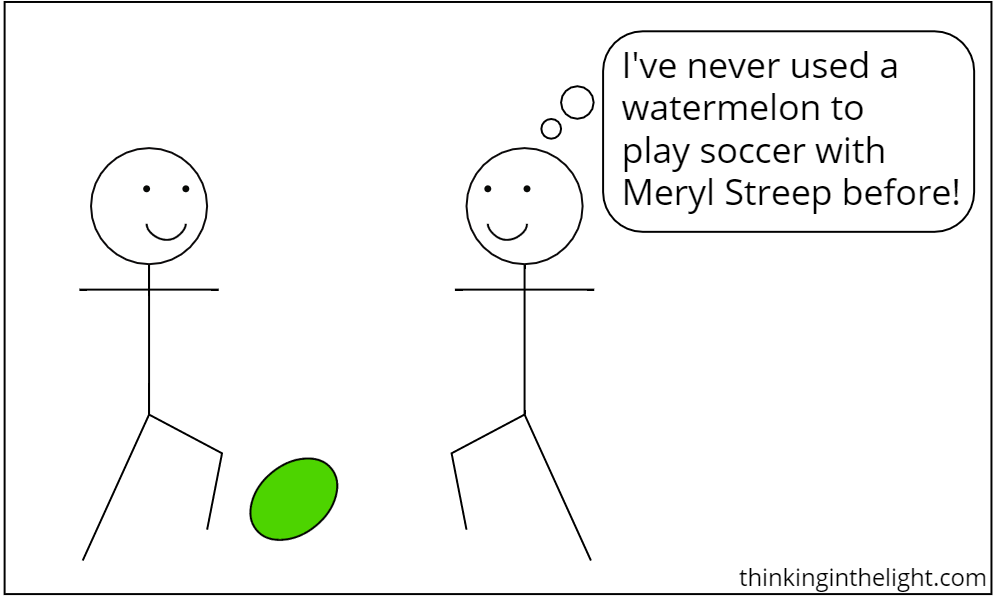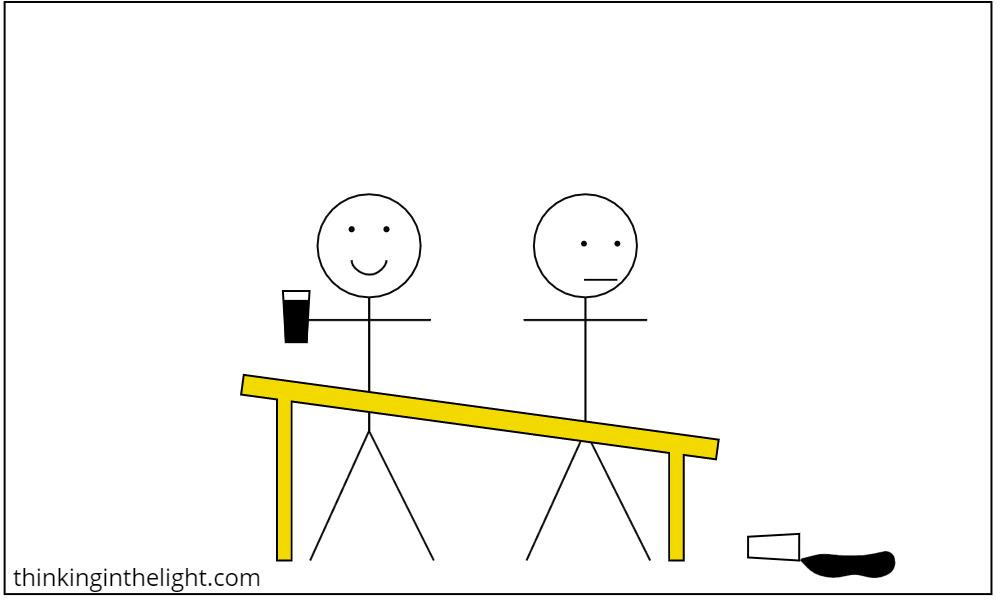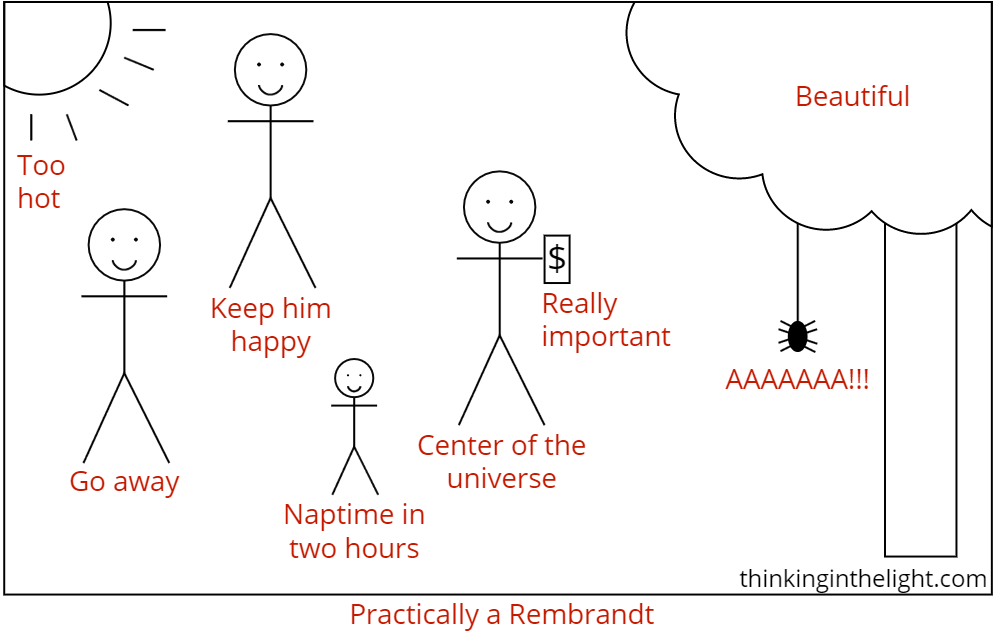Wherever you are, take a look around you right now.
Undoubtedly you see some objects: perhaps chairs, tables, walls, and windows, or maybe it is trees and grass. You might also see people: a stranger or a family member, a friend or your sworn enemy who has finally come seeking revenge.
Now remember the events from yesterday.
You got up, got dressed, ate breakfast. You did some stuff you had to do, like work or chores. You did some stuff you wanted to do, like ranking all the movies in the Marvel Cinematic Universe. (The Winter Soldier is #1.) You talked to people and spent time on your own.
Objects, people, events—these are the sort of thing that make up the world. As we go through life we come in contact with more of these things. We meet new people, do new activities, and encounter new objects.

Learning is, in large part, a process of becoming acquainted with more of these. It can even seem like this is all we need to do in order to know the world. I just go out and encounter it.
Where, then, is the place for thinking? If I’m thinking, I’m just sitting around, rather than going out and interacting with things. And my couch may be very comfortable, but wouldn’t it be better to experience the world rather than to just think about it?
The fact is, however, that experiencing things is not merely encountering them. Our thoughts are a part of the experience.
When we see the table, we often experience it as more than just a table. It is my table that I put there for various useful reasons and that if it is moved I get annoyed. Or it is the table that hurt my toe because it was in my way. Or it is my friend’s favorite table, the one whose hideousness I try desperately to ignore. Or maybe I do just experience it as simply a table, a replaceable thing with little value.

Similarly, when we interact with a person, we experience them as a friend I am trying to be sympathetic with, or a stranger towards whom I am indifferent, or a useful person who can get me what I want, or an obstacle whom I would like to see thwarted.
And when we do an activity in the course of our day, that activity carries different meanings for us. It is the chore that is getting in the way of my fun. It is the work that will bring me success in my life. It is the five minutes of relaxation that gets me through the day or the mindless task that is inescapable. It is the first step on my way to world domination—mwahahaha!
With everything around us and everything we do, we don’t just encounter things—table, brother, washing dishes—but we experience them. And this experience is shaped by how we think about these things, regardless of whether that thought is conscious in our mind or implicit in our action.
As an example, take the device on which you are reading this. Suppose that someone came over, took it, and threw it into the ocean. (I guess you will also have to suppose there is an ocean nearby.) How would you react? If it was your computer or phone, you would be very upset. You would think of all the things for which you need the device and of all the data that is on it. However, if it was a public computer in a library, you would probably find the whole interaction very strange, but it would less likely upset you. The same thing—an internet device—is experienced differently in different contexts, because it is thought about differently.

Given that experiences differ and are shaped by our thoughts, how should we think about the world? One option is simply to say that the world is what we think of it, that our experience is reality. This is a popular position to take, and it makes a certain amount of sense, given the ways that our divergent backgrounds and life stories lead to drastically different experiences of life. However this position is ultimately not adequate. It does not allow for false experiences or improvements in our thinking.
For example, I might experience the closet as a horrible place with potential monsters. The best option is not to say that closets simply are terrifying, as we recognize when we counsel the fears of children. If possible, given that there are no monsters, I should work on changing my thoughts so I no longer fear closets.
Instead of saying that the world is what we think of it, it is better to acknowledge that we can think about things better or worse, that there is such a thing as a truer thought. I may be interacting with the person in front of me as an annoyance that is getting in the way of my goals, but what if they are really a human being with as much value as myself? I need to change the way I’m thinking about them. I may be working at my job because career success is the thing that will ultimately bring me satisfaction, but what if all the people who achieve success and then feel hollow are right; what if it will not bring me satisfaction? I need to change the way I’m thinking about work.
And this is why thinking matters, why we must think as an activity rather than as a passive experience. We cannot escape the way our thoughts shape our lives, but we can try to take hold of those thoughts for the better. We can try to have true thoughts rather than ones that are reactionary, self-serving, or dictated by our upbringing.
So on this site I am trying to think about everything, from objects to actions to people to Disney movies. And I am trying to examine various ways that people do think about these things, in order to understand which ways are better. I may not always be correct in my thinking, but I invite you to think along with me.
